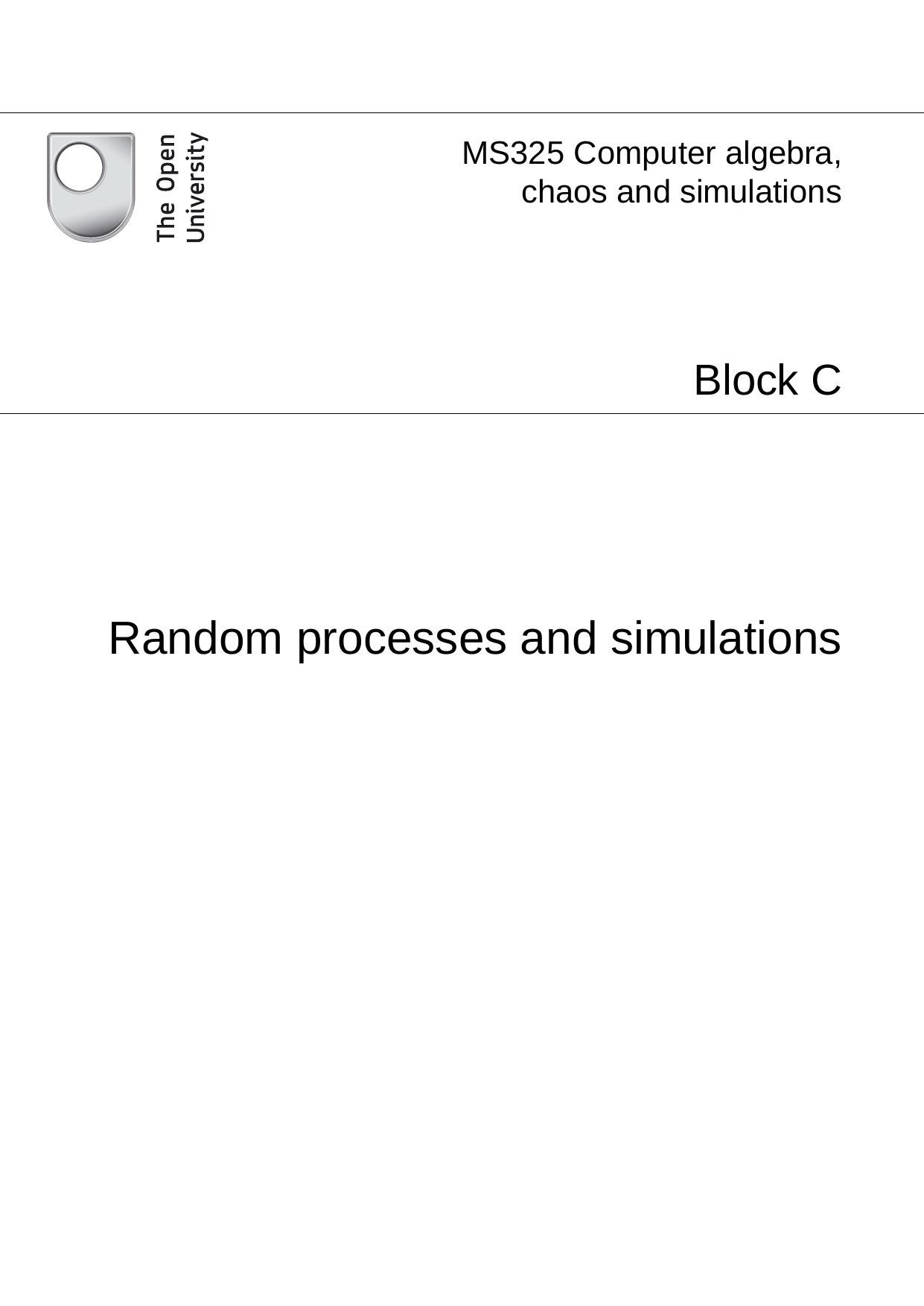Download MS325 - C - Random Processes and Simulations PDF Free - Full Version
Download MS325 - C - Random Processes and Simulations by Open University Course Team, Open University MS325/Block C., Computer algebra, chaos and simulations in PDF format completely FREE. No registration required, no payment needed. Get instant access to this valuable resource on PDFdrive.to!
About MS325 - C - Random Processes and Simulations
This book is concerned with computer simulations of random processes such as, for example, gambling games and models of the growth of biological populations. Such a subject relies heavily on computing, which is achieved using Maple, although pencil-and-paper analysis also enters into this block. The block starts by introducing some basic notions of randomness and probability, illustrated by examples taken from coin-tossing and die-rolling experiments, followed by some simple models of population dynamics. Then follows a discussion of random walks and the central limit theorem, which relates to properties of random systems with many random variables. This theory is applied to the integration of functions, the so-called Monte Carlo method of integration. The rest of the block confines itself to exploratory simulations of a range of systems starting with the standard map (a type of dynamical system showing chaotic behaviour) and models for infectious disease spreading (modelled either by sets of differential equations or by random processes). Random models of traffic flow are simulated, showing the emergence of traffic jams. Finally the block closes with a detailed investigation of the dynamics of the trebuchet, which is a type of mediaeval siege engine.This block contains exercises and activities which use a commercial software package called Maple , you are advised that you will need access to this software to allow the exercises and activities to be completed.
Detailed Information
| Author: | Open University Course Team, Open University MS325/Block C., Computer algebra, chaos and simulations |
|---|---|
| Publication Year: | 2010 |
| ISBN: | 1848732333 |
| Pages: | 240 |
| Language: | other |
| File Size: | 7.3495 |
| Format: | |
| Price: | FREE |
Safe & Secure Download - No registration required
Why Choose PDFdrive for Your Free MS325 - C - Random Processes and Simulations Download?
- 100% Free: No hidden fees or subscriptions required for one book every day.
- No Registration: Immediate access is available without creating accounts for one book every day.
- Safe and Secure: Clean downloads without malware or viruses
- Multiple Formats: PDF, MOBI, Mpub,... optimized for all devices
- Educational Resource: Supporting knowledge sharing and learning
Frequently Asked Questions
Is it really free to download MS325 - C - Random Processes and Simulations PDF?
Yes, on https://PDFdrive.to you can download MS325 - C - Random Processes and Simulations by Open University Course Team, Open University MS325/Block C., Computer algebra, chaos and simulations completely free. We don't require any payment, subscription, or registration to access this PDF file. For 3 books every day.
How can I read MS325 - C - Random Processes and Simulations on my mobile device?
After downloading MS325 - C - Random Processes and Simulations PDF, you can open it with any PDF reader app on your phone or tablet. We recommend using Adobe Acrobat Reader, Apple Books, or Google Play Books for the best reading experience.
Is this the full version of MS325 - C - Random Processes and Simulations?
Yes, this is the complete PDF version of MS325 - C - Random Processes and Simulations by Open University Course Team, Open University MS325/Block C., Computer algebra, chaos and simulations. You will be able to read the entire content as in the printed version without missing any pages.
Is it legal to download MS325 - C - Random Processes and Simulations PDF for free?
https://PDFdrive.to provides links to free educational resources available online. We do not store any files on our servers. Please be aware of copyright laws in your country before downloading.
The materials shared are intended for research, educational, and personal use in accordance with fair use principles.

